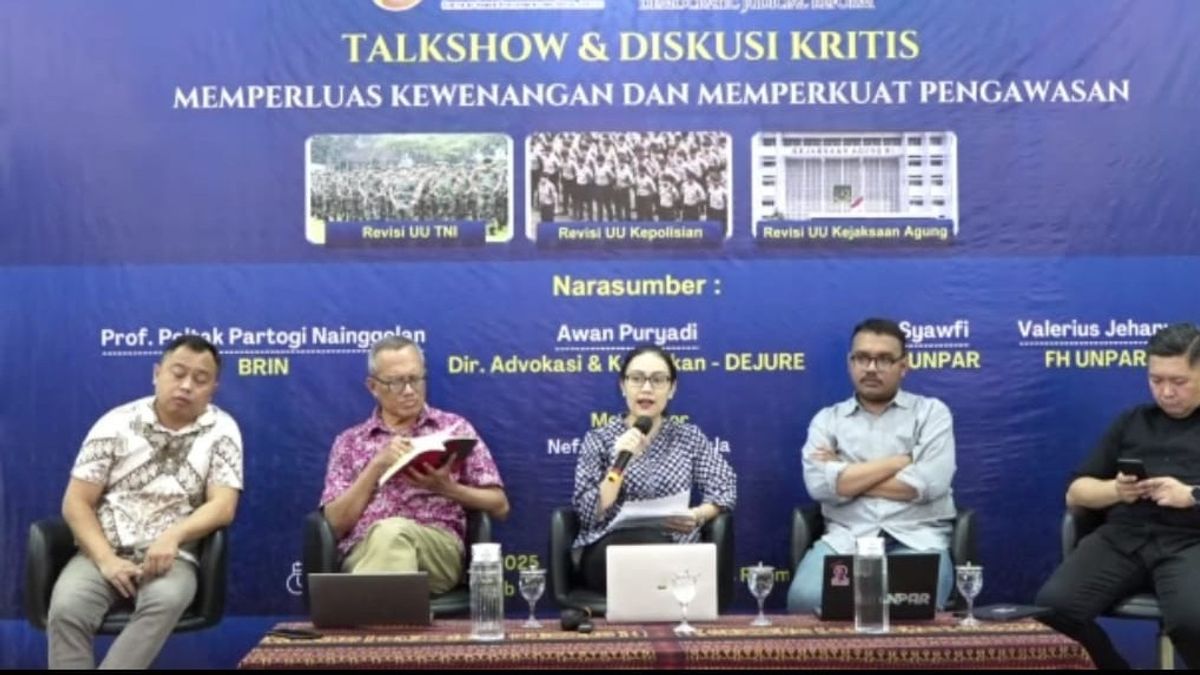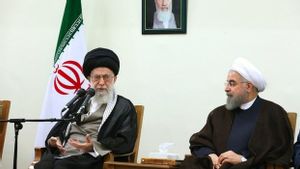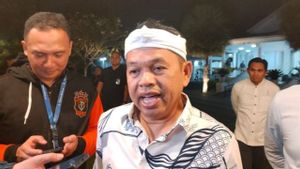JAKARTA - The addition of authority in the revision of the Prosecutor's Law is in the spotlight of academics and legal practitioners. One of them is related to intelligence functions for the Adhyaksa Corps.
This was conveyed by a lecturer at the Legal faculty of the Parahyangan Catholic University, Valerianus Beatae Jehanu, who said that the addition of this authority must be careful. This is because the revision of the law does not clearly regulate the function of multimedia supervision that can be carried out by the Prosecutor's Office.
"The Prosecutor's Intelligence Function in law enforcement is wrong because it should only be in terms of pro justicia," said Valerianus in a public discussion entitled 'Expanding Authority and Strengthening Supervision' in Jakarta, quoted on Friday, March 21.
Instead of increasing authority, the supervision of the Prosecutor's Office should be strengthened through the revision of the law. This is because this condition is prone to causing impunity for prosecutors.
One example called Valerianus is that related to the phrase "examination of the prosecutor" can be done with the approval of the Attorney General.
"The Prosecutor's Control is getting weaker because it has immunity, namely the Prosecutor can only be summoned and examined at the permission of the Attorney General," he said.
Similarly, the Director of Advocacy and Policy of De Jure, Awan Puryadi also highlighted the issue of increasing intelligence authority through the revision of the Prosecutor's Law.
According to him, this article can be misused to summon certain parties without going through a clear legal process.
However, on the one hand, this act will not be sued in the pretrial because it is not in the law enforcement process.
"Once the incident, as many as 43 honorary teachers who became civil servants were invited by the Padang Sidempuan prosecutor's office because they were suspected of having corruption information. The regent was suddenly summoned based on information. It could be like that," said Awan.
SEE ALSO:
Awan also highlighted the addition of other powers such as tracing, confiscation, and returning assets of corruption crimes through the establishment of the Asset Recovery Agency.
According to him, this authority should be accompanied by strengthening supervision.
In addition, the issue of stopping cases outside the court process or Restorative Justice (RJ) was also mentioned by the Clouds. Without clear supervision, he is worried that this authority will be misused to play cases.
"It could be that the Prosecutor's Office investigated the case, then for certain reasons it was dismissed on the grounds of RJ. Then what about the illegal mining case, for example, then stopped on the grounds of RJ," he explained.
Finally, Awan also criticized the Prosecutor's Office's definition in Law Number 11 of 2021 which was not changed.
"The power of justice is independent and is in judiciary. Meanwhile, the Prosecutor's Office is a Government Institution in executive power. This is wrong and dangerous for our democracy and the legal system," he explained.
According to him, this condition can also lead to immunity for prosecutors.
He gave an example in the Pinangki case, for example, the Attorney General had issued a regulation to provide legal assistance, because it was considered carrying out the duties of the prosecutor's office.
"In the 2021 Prosecutor's Law, direct immunity is legal, legal. This immunity should be given by judiciary. This is a problem because the prosecutor's office provides immunity to itself," he concluded.
The English, Chinese, Japanese, Arabic, and French versions are automatically generated by the AI. So there may still be inaccuracies in translating, please always see Indonesian as our main language. (system supported by DigitalSiber.id)
















